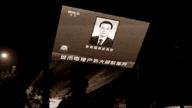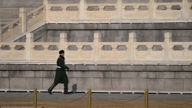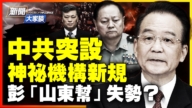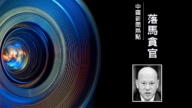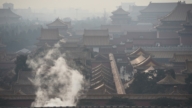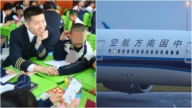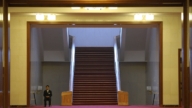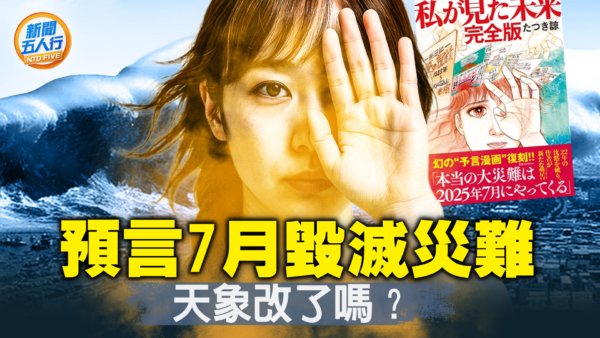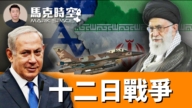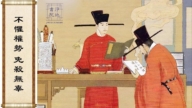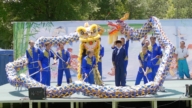【新唐人2012年12月19日讯】新任中共总书记习近平,上任之后备受瞩目,有评论形容习近平“开局三招直指中共要害问题”。不过,这个“高帽子”是不是被大多数人接受呢﹖分析人士指出,习近平是“穿新鞋,走老路”。那么,习近平真的敢点中共的死穴吗?下面请看专家的分析。
日前,香港《大公网》发表评论文章,大赞习近平的所谓“工作作风八项新规、改革、反腐”,这三项直指中共要害,值得赞誉,展示新气象等。
文章把这些举措,称为“习近平开局三招直指中共要害问题”。而第一招,是习近平在中央政治局关于改进工作作风,密切联系群众的“八项规定”。
值得注意的是,香港《明报》摘录了2003年3月,中央政治局出台的《关于进一步改进会议和领导同志活动新闻报导的意见》,与这八项措施出奇的相似。
旅美中国社会问题研究人士张健:“八项新规,对于中国,我觉得就是穿新鞋走老路,或者是新瓶装旧酒,用这种来形容它,我认为是最恰当不过的,因为在中国不缺乏这种法制法规,想八项新规落实的话,就不如把宪法真正落实到实处,那么,比任何中共出台的干部约束的政策,要强百倍、强万倍。”
习近平出任中共总书记后,外出考察的第一站,选择了当年邓小平“南巡”的路线,期间还有改革呼声颇高的广东省委书记汪洋陪同。另外,在此之前,中共十八大中央政治局常务委员会委员李克强,也发表过“改革还是中国最大红利”的讲话。习、李体制,真的要倒出发酸的旧酒进行改革了吗?
旅美的中国社会问题研究人士张健认为,人们所期待的,是习近平能够大刀阔斧的进行“政治体制改革”,彻底根除中共这个毒瘤。
张健:“但是,习近平他不想做到这步,他只想用进行经济体制改革,来挽救他的政治,那么这种情况,其实就是病入膏肓以后,有病乱投医的一种状态,他可能不想在自己任上,看到中共体制的灭亡,这种解体的情况发生,所以,这个就是死马当成活马医。”
时事评论员林子旭表示,习、李两人都没有提到政治改革,而政治改革才是中共现在的主要问题。他说,温家宝虽然没有什么具体的行动,但是,毕竟他很多场合公开提到了政改,从这一点上可以看出,这是习李体制下的一种倒退。
而习近平的第三招——反腐,林子旭说,乍一看声势浩大,好像中共这次来真的了。
林子旭:“但是,我们看到习近平的反腐,只是在数量上做文章,质量上却很差,就像一台戏,来了一大堆演员,但是其中没有一个大腕儿,这个戏看似很热闹,但是,实质上也不过就是一台闹剧罢了。真的要反腐,就应该打一个像江泽民这样的大老虎,这样才能有说服力。”
习近平上任不久,重庆北碚区委书记雷政富淫乱视频被曝光,经过60多个小时,雷政富就被免去书记一职,并被立案调查﹔而广东厅官给二奶写承诺书,经曝光,也迅速被调查,还有广东省财政厅原副厅长危金峰、和国土资源厅副厅长吕英明等人都相继落马。
不过,网络作家吴建国则认为,所谓的“改革派”在中共体制内,都无法作为。
网路作家吴建国:“中共内部过去一直有一个尖锐的矛盾,那就是倡议政治体制改革,还政于民的改革派,与中共权贵阶层的利益获得者之间的矛盾,而之后这些改革派都纷纷落马。习近平的父亲习仲勋也是改革派的人物,最后也无所作为而隐居深圳。”
吴建国表示,假如习近平真的敢点中共的死穴,最终就会与中共的权贵们,发生激烈的矛盾冲突,那时候,是保中共的残存,还是顺应民意,解体中共,还政于民,人们将拭目以待。
采访编辑/常春 后制/薛莉
Xi’s ‘Three Measures’ Directly Hits the CCP’s Crucial Point?
The Chinese Communist Party(CCP)’s new general secretary
Xi Jinping has been noticeable since taking power.
Some say Xi has directly hit the CCP’s crucial points with
his opening of the ‘3 measures’, but what do the public say?
Some analysts say Xi is walking down an old road
in new shoes—so will Xi dare to hit the CCP’s crucial points?
Let’s take a look at some experts’ analyses.
Recently, Hong Kong’s Ta Kong network issued an article
praising Xi’s so-called ‘new measures’—the “eight new rulers
of working style, reform and anti-corruption”—saying that,
they are praiseworthy as they directly tackle crucial issues.
The article said, “Xi’s three measures directly hits on
the CCP’s crucial points”.
The first measure consists of eight regulations proposed by Xi
in a political bureau meeting on improving their working style
and on building a close connection with the public.
It’s worth noting that Xi’s eight measures are very similar to
the CCP political bureau’s “advice on further improving
news coverage of the meeting and of the leader’s activities"
given in March 2003 as reported by Hong Kong’s ‘Ming Pao’.
[Zhang Jian, Chinese Social Study Expert from U.S.]:
“These ‘eight measures’ are like walking down an old road in new shoes,
or like old wine in new bottle—in china,
there is no absence of this style of law and regulations.
First, the constitution should truly be implemented,
and then they can talk about the eight new regulations.”
As general secretary, Xi’s first place of investigation
followed the same route as Deng Xiaoping’s “southern tour".
Wang Yang was considered a reformist
and accompanied Xi during his investigation.
Politburo Standing Committee member Li Keqiang also
published the speech—"Reform is China’s largest dividend".
Did Xi and Li really want to change the old system,
bringing reform to China?
Zhang Jian says the public had expected Xi to perform
a dramatic political reform—getting rid of the CCP.
[Zhang Jian]: “Yet, Xi doesn’t want to do drastic reform;
he only wants to utilize economic reform to save the CCP
—the CCP is in dying state.
Xi doesn’t want the CCP’s demise to be in his hands
so he wants to do everything he can to save the CCP.”
Political commentator Lin Zixu says Xi and Li haven’t spoken
of political reform, but reform is the key to the problem.
Lin says, though Wen Jiaobao didn’t take any actions, he did
after all, talk about political reform in different situations.
From this point, we can say that the Xi-Li system shows
a historical regression in terms of China improving.”
Xi’s third measure is against corruption,
and it looks as though the CCP may be taking real actions.
[Lin Zixu, Political Commentator]:
“However, Xi’s anti-corruption only focuses on quantity;
the quality is poor—it looks like a show with a large group of
actors but no star—though it’s lively, it’s only a farce.
If Xi really wants to be against corruption, he should touch
the big corrupt elements such as Jiang Zemin—now that would be convincing!”
Shortly after Xi took power, Beibei District’s
Chongqing City Party Secretary,
Lei Zheng Fu’s promiscuous video was exposed and
within 60 hours, he was dismissed and placed under investigation.
A superintendent in Guangdong Province also underwent
investigation, after a letter to his mistress was exposed.
Former deputy director of Guangdong Province’s Department
of Finance, Wei Jinfeng,
and deputy director of the Land and Resources Department,
Lu Yingming have also been sacked.
However, network writer Wu Jianguo says, the so-called
‘reform group’ cannot do big things within the CCP’s system.
[Wu Jianguo, Network Writer]:
“There’s a sharp inner conflict within the CCP—it’s between
the political reform and the returning of power to the public
and the elite class—the reformists are being constantly sacked.
Xi Jinping’s father Xi Zhongxun was also a reformist, but
in the end he was also in inaction; secluded in Shenzhen City.”
Wu Jianguo says, if Xi really dares to hit the CCP’s crucial
points, he would end up fiercely at odds with the elite class.
At such a time, the public would see whether he decides
to keep the CCP or to meet public aspirations and dismiss it.


